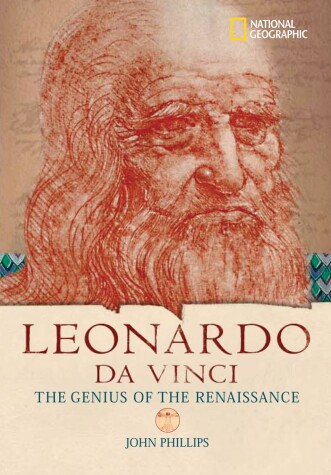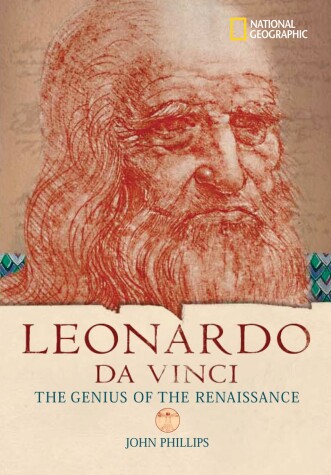National Geographic World History Biographies
2 total works
The original "Renaissance Man" was a scientist, a painter, a sculptor, an architect, a military engineer, an inventor, and a musician. Although he died in 1519, he left a rich legacy of learning in scores of notebooks. These included the first detailed drawings of the human anatomy, pioneering notes on the structure and growth of plants, and even detailed diagrams of machinery from which modern-day engineers have constructed prototypes. His 15th century imagination envisaged tanks and helicopters, and he even used mirror (or backward) writing to protect his ideas. The genius of Leonardo da Vinci continues to inspire and to intrigue each new generation of students throughout the world.
National Geographic supports K-12 educators with ELA Common Core Resources.
Visit www.natgeoed.org/commoncore for more information.
National Geographic supports K-12 educators with ELA Common Core Resources.
Visit www.natgeoed.org/commoncore for more information.
The original "Renaissance Man" was a scientist, a painter, a sculptor, an architect, a military engineer, an inventor, and a musician. Although he died in 1519, he left a rich legacy of learning in scores of notebooks. These included the first detailed drawings of the human anatomy, pioneering notes on the structure and growth of plants, and even detailed diagrams of machinery from which modern-day engineers have constructed prototypes. His 15th century imagination envisaged tanks and helicopters, and he even used mirror (or backward) writing to protect his ideas. The genius of Leonardo da Vinci continues to inspire and to intrigue each new generation of students throughout the world.
National Geographic supports K-12 educators with ELA Common Core Resources.
Visit www.natgeoed.org/commoncore for more information.
National Geographic supports K-12 educators with ELA Common Core Resources.
Visit www.natgeoed.org/commoncore for more information.

